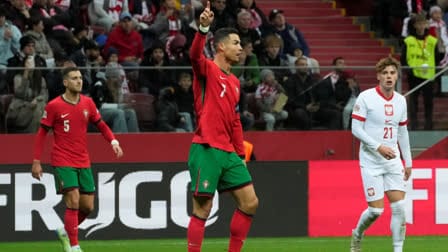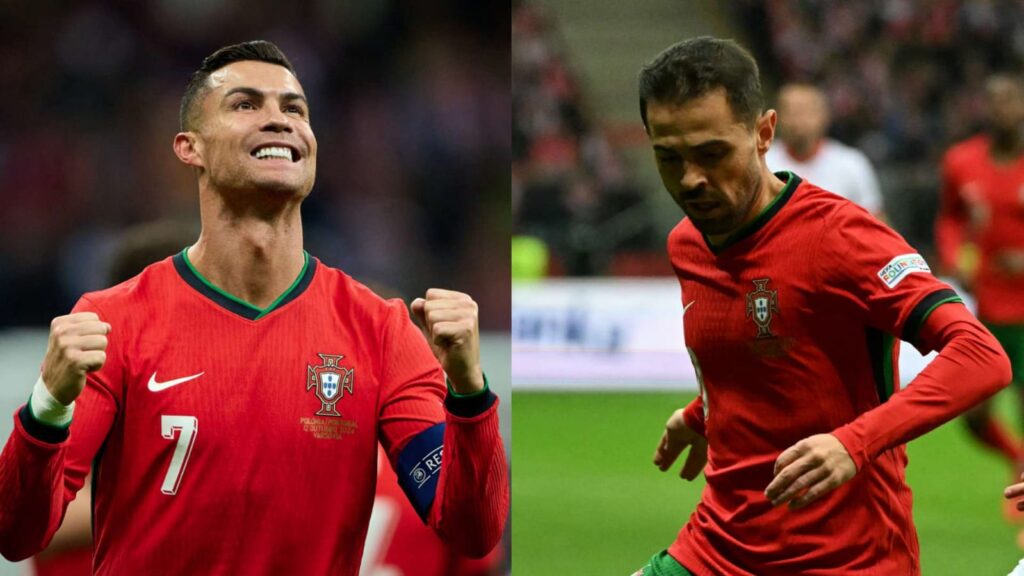Portugal vs Poland: A Clash of European Footballing Cultures
The rich history and passionate fans of European football have always ensured that matchups between teams from different parts of the continent carry a certain weight. One such intriguing encounter is between Portugal and Poland—two countries with distinct footballing traditions but a shared ambition to succeed on the international stage. While not as high-profile as some other European rivalries, a match between Portugal and Poland often provides a captivating spectacle, showcasing the contrast between tactical discipline and flair, hard work and artistry.
In this blog, we’ll explore the footballing cultures of both nations, their recent performances on the international stage, notable players, key moments in their history, and what we can expect from a future encounter between Portugal and Poland.
A Snapshot of Portuguese Football
A Rich Footballing Legacy
Portugal, a country with a relatively small population, has long punched above its weight in football. Although the country has never won the World Cup, it has consistently produced world-class talent, making its mark on the global stage. Historically, Portuguese football has been characterized by a focus on technical ability, creativity, and flair. From the legendary Eusebio in the 1960s to more contemporary icons like Cristiano Ronaldo, Portugal has boasted players capable of dazzling on the ball.
The rise of the Portuguese Primeira Liga (domestic top-flight football) has also contributed to the country’s footballing stature. Clubs like Benfica, Portimonense, and Porto have achieved European success, with Porto notably winning the UEFA Champions League twice in the last few decades (2004 and 2008).
Recent Success: A European Championship Glory
Portugal’s most notable success came in 2016 when they won the UEFA European Championship. Under coach Fernando Santos, Portugal’s national team displayed a blend of defensive solidity and the attacking brilliance of Cristiano Ronaldo and others like Nani and João Mário. The victory in France, capped off by a 1-0 win over host nation France in the final, was a moment of redemption for Portugal. Despite losing Ronaldo to injury during the match, the team demonstrated tactical maturity and resilience to lift their first major international trophy.
Additionally, the 2019 UEFA Nations League title further solidified Portugal’s place among the top footballing nations in Europe. With players like Bernardo Silva, Rui Patrício, and Bruno Fernandes emerging as key players, Portugal’s footballing identity is evolving, maintaining a balance between the flair of the past and the structured, team-oriented approach that brings consistent success.
Key Players and Current Strengths
While Cristiano Ronaldo remains a key figure, despite his age, the current Portuguese squad boasts an exciting mix of youth and experience. Bruno Fernandes and Bernardo Silva are central to the team’s creativity and playmaking, while Rúben Dias and João Cancelo add defensive stability and attacking width from the back.
The Portuguese system is often known for its flexible formations, adapting to the players at Santos’ disposal. Whether using a 4-3-3 or a 4-4-2, the focus is always on ball possession, creating opportunities from wide areas, and combining technical ability with a solid defensive structure. However, the one key issue for Portugal over the years has been their inconsistency at the very top level in the World Cup. They have yet to lift the trophy despite a generation of incredible players, a storyline that remains to be resolved.

A Snapshot of Polish Football
A Legacy of Hard Work and Tactical Discipline
Poland’s footballing history is different from Portugal’s but equally compelling. While the Polish national team has not produced the same number of global superstars, the team has often been known for its discipline, strength, and tactical intelligence. Poland’s rich footballing tradition dates back to the 1970s and 1980s, when players like Zbigniew Boniek, Grzegorz Lato, and Włodzimierz Lubański made significant impacts at international tournaments.
The 1970s and 1980s marked Poland’s golden era, with the national team finishing in third place at the 1974 FIFA World Cup and winning the Olympic gold medal in 1972. They have also been a consistent force in European football, with a focus on organization, counter-attacking football, and physicality.
The Post-2000 Revival
In recent years, Poland has undergone something of a footballing revival. After a period of underachievement, the team reached new heights in the 2010s, largely thanks to the emergence of Robert Lewandowski—one of the best strikers in the world. Under coach Adam Nawałka, Poland reached the quarter-finals of the 2016 UEFA European Championship, their best performance at the tournament since 1982. Lewandowski, alongside other key players like Grzegorz Krychowiak and Łukasz Fabiański, helped the team qualify for major tournaments consistently, including the 2018 FIFA World Cup and 2020 UEFA European Championship.
However, Poland’s performances in global tournaments have often been underwhelming, with early exits from major competitions hindering their overall legacy. The 2022 World Cup, for example, saw them make it to the Round of 16, but their journey ended there after a loss to France.
Key Players and Current Strengths
At the heart of Poland’s current team is Robert Lewandowski, who is considered one of the finest centre-forwards of his generation. Playing for Barcelona, Lewandowski continues to be the focal point of Poland’s attack, leading the line with his exceptional finishing ability, aerial prowess, and leadership qualities. However, Poland’s success is not just built around one player. Players like Piotr Zieliński, Jakub Błaszczykowski, and Kamil Glik play crucial roles in ensuring the team remains competitive at the highest level.
Poland’s footballing style is often described as pragmatic and structured. They tend to play with a solid defensive block and look to transition quickly on the counter-attack. While not as technical as some of their European counterparts, the Polish team excels in set-piece situations and has a reputation for being difficult to break down.
Portugal vs Poland: A Tactical Breakdown
When analyzing a match between Portugal and Poland, there are several key tactical aspects to consider. On one hand, Portugal’s possession-based style and technical finesse create a dynamic attacking force, while Poland’s focus on defensive stability and counter-attacking football can pose a challenge for opponents who are too attacking-minded.

Portugal’s Approach: Possession and Width
Portugal, under Fernando Santos, typically deploys a flexible tactical system, with an emphasis on possession and utilizing the width of the pitch. The team’s wide full-backs, particularly João Cancelo and Raphaël Guerreiro, play an important role in stretching the opposition’s defense and providing crosses into the box. With Bruno Fernandes pulling the strings in midfield and Bernardo Silva drifting into dangerous areas, Portugal’s fluid attacking play can overwhelm teams if not managed properly.
However, Portugal’s defensive setup is often more conservative than one might expect from a team with so much attacking talent. With players like Rúben Dias and Pepe in central defense, the team is organized and difficult to break down. But their biggest threat is their ability to transition quickly from defense to attack, utilizing the pace and finishing ability of players like Cristiano Ronaldo and Diogo Jota.
Poland’s Approach: Defensive Solidity and Counter-Attacks
Poland’s tactical approach is more rigid and cautious, with a primary focus on maintaining a solid defensive structure. The team often plays with a deep block, allowing opponents to possess the ball while looking for opportunities to break on the counter. This makes them dangerous in transition, especially with a striker of Lewandowski’s caliber to capitalize on any mistakes.
Poland’s midfield is crucial in controlling the tempo of the game. Grzegorz Krychowiak offers stability in front of the defense, while Piotr Zieliński adds creative flair and vision. The Polish team relies heavily on its full-backs and wingers to contribute in the final third, often delivering crosses into the box for Lewandowski and others.
Notable Encounters
Portugal and Poland have faced off a handful of times in recent history, with the most significant clashes occurring in the UEFA European Championship tournaments. The most memorable of these came in the 2016 Euros, when Portugal and Poland met in the quarter-finals. The match ended in a 1-1 draw after extra time, with Portugal eventually winning 5-3 in a penalty shootout. The drama and intensity of that match captured the essence of European football, with both teams showing resilience and tactical discipline.
A Competitive Rivalry
While Portugal has had the upper hand in recent encounters, Poland has always been a formidable opponent. These teams share a common desire to prove themselves on the international stage, and matches between the two sides are often closely contested.

Conclusion
Portugal vs Poland is a fascinating matchup that brings together two teams with contrasting styles. Portugal’s emphasis on technical flair, possession, and individual brilliance offers a stark contrast to Poland’s disciplined defensive setup and counter-attacking focus. Both nations have a rich footballing history and a desire to succeed at the highest level.
As both teams continue to evolve, with Portugal embracing youth alongside experience and Poland relying on the brilliance of Lewandowski, these encounters promise to remain exciting, competitive, and full of drama. Regardless of who comes out on top,
